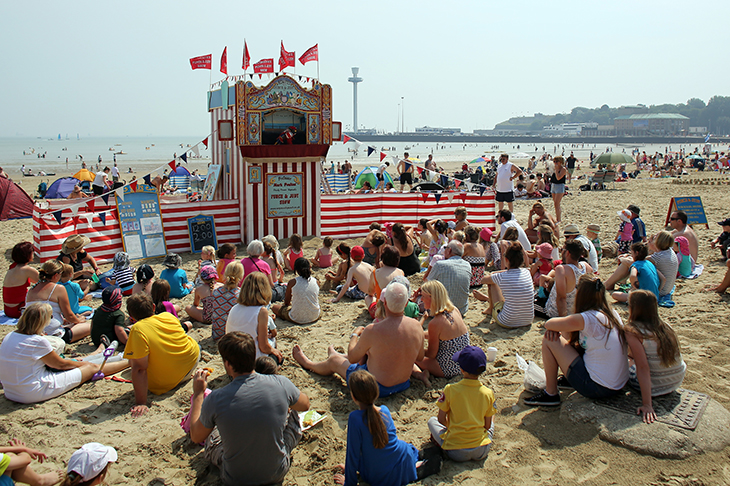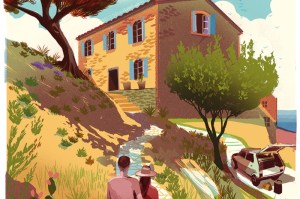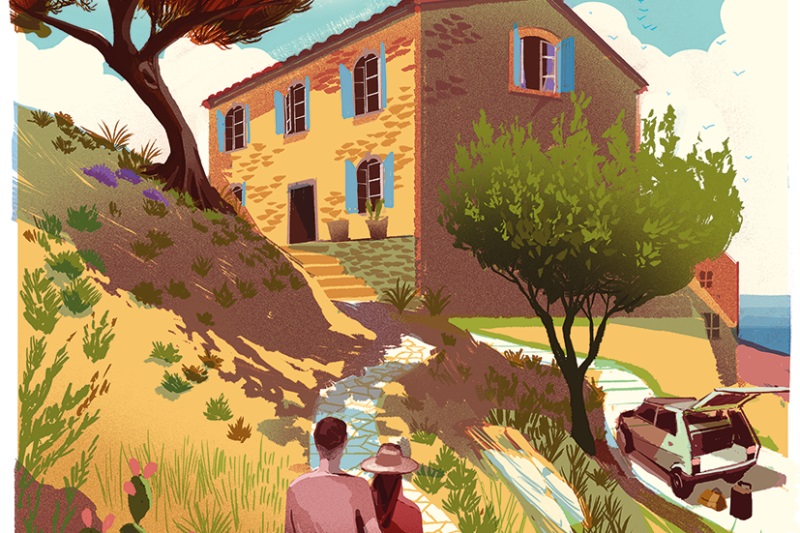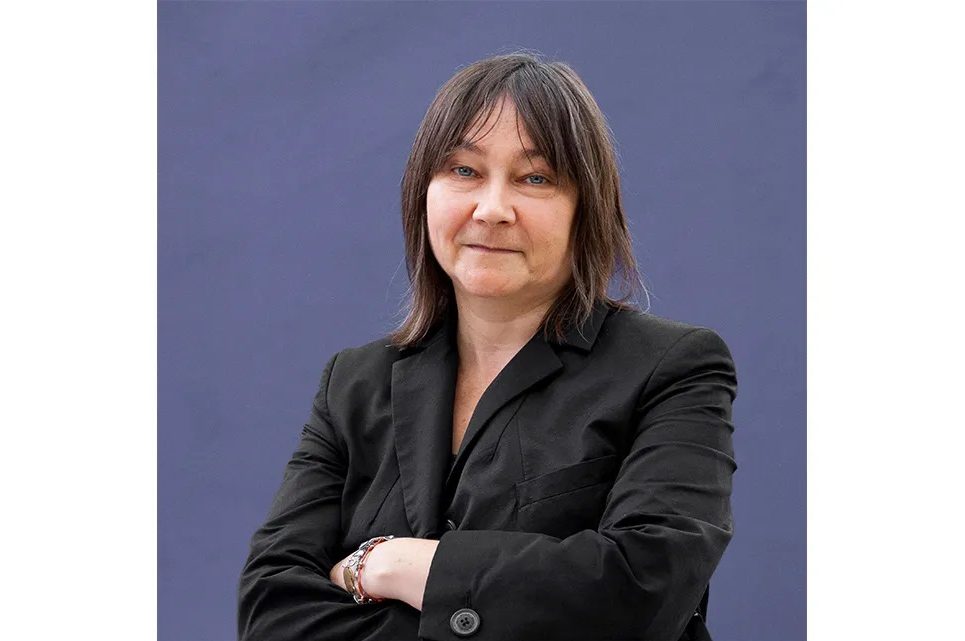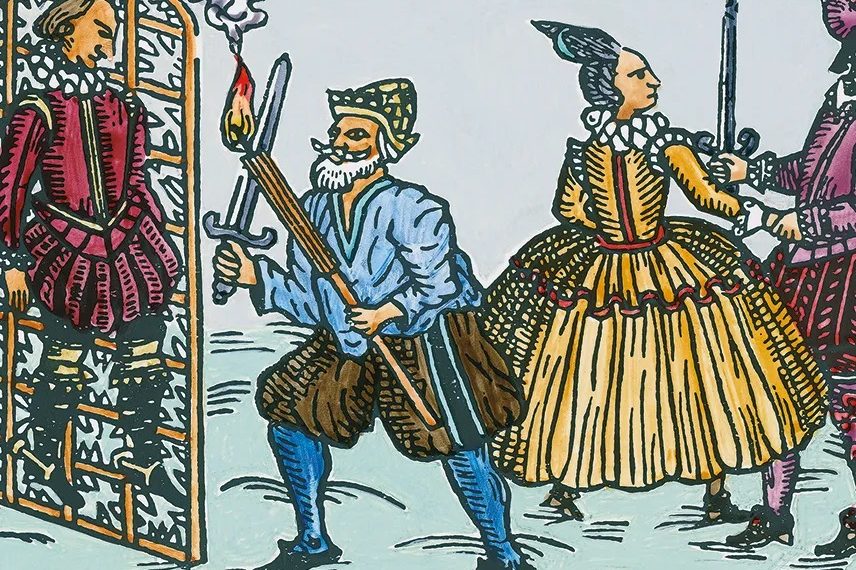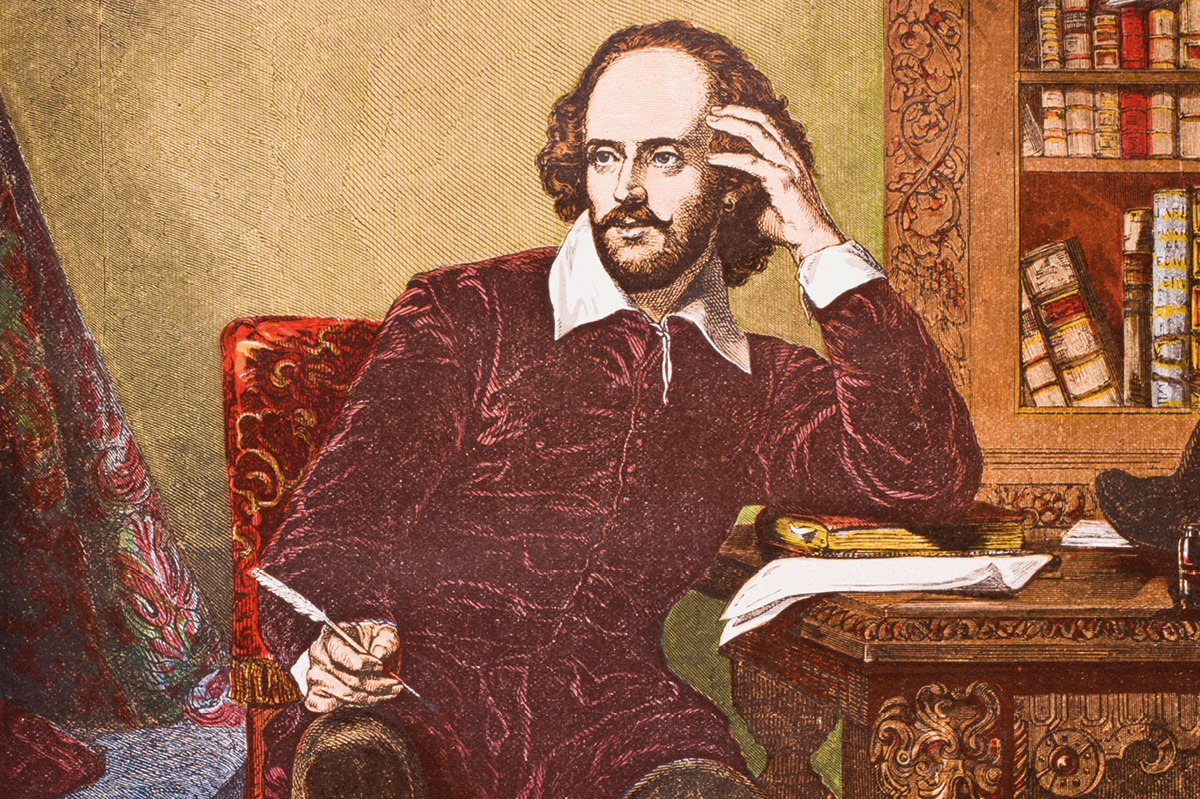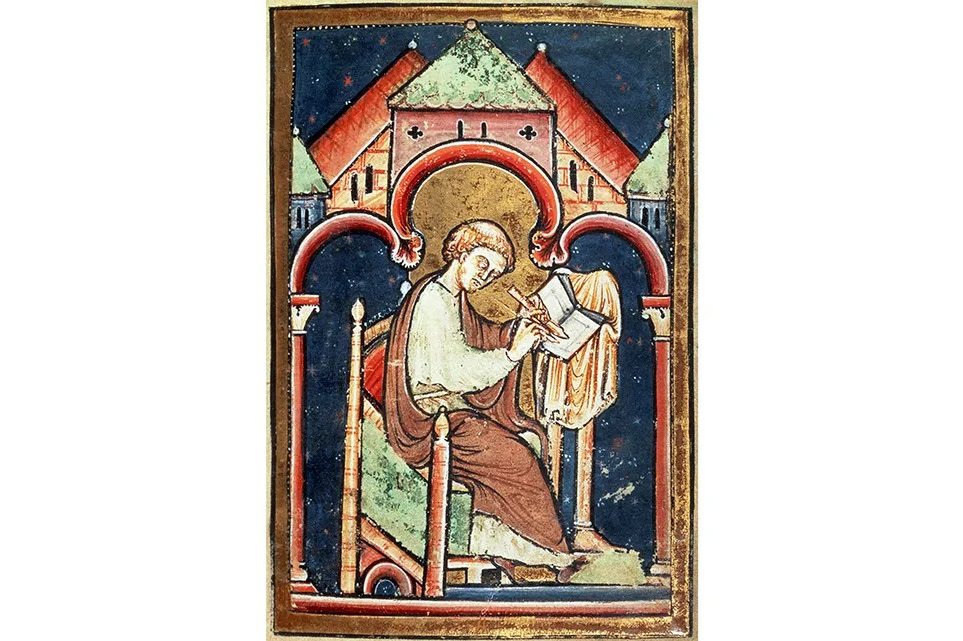The phrase ‘Shakespeare comedy’ is an oxymoron with a long pedigree, one which perhaps stretches back to the late 16th century; and a running joke in Ben Elton’s Upstart Crow is that no one finds the comedies funny except their author, who thinks they’re hilarious. So it is a brave writer who, in a bid for laughs, bases a Shakespeare comedy on a Shakespeare comedy — in this case The Comedy of Errors. Fortunately, Marie Phillips has the wit, and sufficient wisdom, to pull it off.
In Oh I Do Like to Be… Shakespeare is reborn in a grotty English seaside resort, not once but twice. Billy and Bill are not merely twins but clones, some Shakespearean DNA having been covertly extracted from the late playwright’s teeth — Phillips is not overly concerned with historical or scientific verisimilitude. Neither twin knows of the existence of the other. With him/them is his/their sister Sally/Sal, cloned from a hair found on the back of a bus seat. Billy is a would-be playwright (‘If Shakespeare can make up words, he thought, so can I.’). Bill is married to Thandie but is having an affair with Anthony, a traffic warden who, as the story begins, is giving a parking ticket to rogue scientist Eleanor, the twins’ ‘mother’, though almost no one is aware of this fact. As a restaging of Shakespeare in modern dress, Peter Brook it ain’t.
Phillips’s first novel, Gods Behaving Badly, imagined the deities of Greek myth washed up in 21st-century London and was a surprise international bestseller; her second, The Table of Less Valued Knights, was longlisted for the 2015 Baileys Prize for Fiction. As with those books Oh, I Do Like to Be… relies for much of its humor on the author’s Douglas Adams-like fondness for what happens when you bang together a highbrow concept and a lowbrow gag — e.g. the inevitable ‘To B&B or not to B&B? That was the question.’ She also revels in her choice of scenery: the novel is dedicated to ‘all the seaside towns I’ve known and loved’ and ice-creams, beaches and ‘unreconstructed, old-man’ pubs all play significant roles in the convoluted plot, the resolution of which is every bit as implausible as Shakespeare’s. Woes end likewise with the evening sun.
On one level, Oh, I Do Like to Be… is a ludicrous novel, but that would be the same level on which The Comedy of Errors is a ludicrous play. It is also fast, clever and — I can state this with confidence — significantly funnier than the original. Well worth a day trip to the seaside.
This article was originally published in The Spectator magazine.



